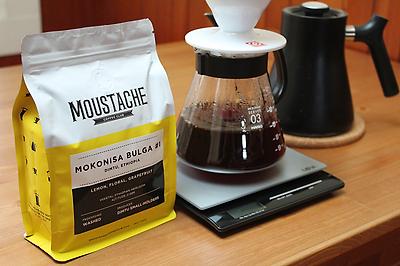
Office Coffee: How It Works
Having a cup of coffee at the office might seem like a simple concept - until your boss asks you to fix the coffeemaker, or your employees start complaining about the morning brew tasting stale. Then you’ll be thrust into the wild world of office coffee delivery, which can get complicated fast: Where does the coffee come from and why is it so bad? How does the machine work and how should you go about fixing it? Who’s that person in the van that shows up every once in a while and fiddles with the pipes?
We’ll break down the basics of office coffee to help you make heads or tails of your situation, and answer some common questions about drinking coffee while on the clock.
How Coffee Gets To Your Office
There are two main ways that coffee ends up at an office: a coffee supply company delivers it, or someone in your office has been ordering it. This is a big distinction that has a lot of bearing on how you address further office coffee issues, so it’s a good place to start.
- Coffee Supply Companies: These are folks whose business is making (usually bad) coffee available at offices. Generally, these companies rent or lease machines to offices, and provide deliveries of coffee that work for those machines. When something breaks or tastes off, you generally need to contact them sort out any issues, which can be notoriously difficult to do in practice.
- Someone’s Been Ordering Coffee: This is usually the cheaper option for office coffee, and very common at smaller offices. Most office supply companies carry coffee and filters for common coffee-makers. If you have a stock of dry coffee ground or pods in your supply closet, it most likely arrived with your other office supplies. Generally, this means your office owns its coffee-maker - so any issues with the machine should be addressed by contacting a local repair shop, or upgrading your equipment.
Who Are Office Coffee Suppliers?
This is a popular route for many large offices, mainly due to the simplicity it provides. Nobody on your team has to deal with ordering beans or equipment - and if you have a large number of employees, they usually have commercial-grade, high-volume equipment available to keep the coffee flowing all day.
The main drawbacks here are centered around cost and quality. Supply companies usually work on a contract basis, which means they sign your office up for an extended period of time at a price that’s higher than just buying coffee. This increased cost can seem worth it for an out-of-sight, out-of-mind solution - unless your office is underwhelmed by the coffee. Then you’re effectively stuck with whatever the supply company offers in terms of coffee options, and beholden to them for any repairs/maintenance.
Coffee service companies will often claim that their contract can’t be broken, and since nobody knows when the contract was set up, your office will miss an unknown deadline and the supplier will automatically roll you on to another contract. It’s a vicious cycle the leads to poor office coffee for years on end. If this sounds familiar - don’t let these companies push you around! If you are unhappy with your office coffee - contact someone at the supplier and cancel your service. If you don’t take active steps, they will just keep invoicing your company and delivering coffee.
And usually, that coffee will be awful! These companies never get the good stuff - even their high-end options are at the low end of coffee. Supply companies want to keep costs down to improve their margin, so depending on the company you use, you may find your office with old equipment, large coffee deliveries at infrequent intervals, and glorified instant coffee dispensed luke-warm via single-serve packets. It can get so bad that your coworkers would rather leave the office to get coffee than drink what’s in the breakroom. If that’s the case, you’re missing out on a great office perk!
How Does Buying Office Coffee Work?
Buying your own coffee is great for the office that wants to elevate their coffee experience. Buying your own coffee means giving your office control over the quality and variety of coffee on-hand, and can save you money compared to a supply company. For an office that really likes coffee, it can become a fun team activity to try different coffees, and you can fix any problems that arise yourself without worrying about contracts.
There are a few drawbacks to buying your own coffee, including a bit of upfront cost for a coffee maker and grinder. But modern equipment lasts a long time, so if you can put the money up initially, you’ll usually come out ahead in the long-run compared to leasing equipment. The other concern with buying your own coffee is mostly organizational - the office coffee supply is another thing for someone to manage, which is why many offices just order coffee along with the rest of their office necessities. Unfortunately, companies that sell paperclips don’t really specialize in coffee, so you end up with stale, sub-par beans that taste like they’ve been sitting in a paperclip warehouse for months - because they have.

To get around this you can assign a coffee-lover in your office bean duty, and have them be responsible for getting fresh-roasted beans for the office when you’re running low, or you can work with a coffee subscription (like us) to deliver fresh-roasted, premium beans straight to your office. Buying your own coffee can be a fun, cost-effective alternative to crummy office coffee, and we'd love to help you get started!
Office Coffee Frequently Asked Questions
How often should coffee be delivered to my office?
This depends primarily on how big your office is and how much coffee you drink. Coffee tastes best when it’s fresh, so you want to have coffee delivered as often as you can without building up a surplus of unused beans. We recommend keeping a week’s worth of coffee on-hand for any emergencies and having fresh beans delivered every week or two weeks depending on how quickly you go through beans.
What's a fair price for good office coffee?
Coffee supply companies usually set their prices on a per-employee, per-month basis. This can range anywhere from $5.00 to $12.00+ per month, depending on the services included in your plan. The more employees you have, the cheaper your plan becomes in theory, but most of the time you’ll have a hard time getting a solid price list or estimate before an invoice arrives. This is because a lot of coffee supply companies will bill different rates depending on what they think they can charge each company they work with.
But we're talking about good coffee - the kind people at your office will actually want to drink. For that, you'll generally have to buy your own. For high-quality coffee that’s been responsibly sourced and roasted well, you can expect to pay somewhere around $18-27 per pound. There are plenty of cheaper options available, but you get what you pay for in that regard. Many coffee roasters offer a wholesale discount for larger quantities, so be sure to ask about what’s best for your particular office size.
What’s the best office coffee machine?
If you work with an office coffee supply company, they’ll handle this for you and provide whatever machines they think work best for your particular situation. Generally, these are high-volume machines that reheat a big batch of old coffee, or wasteful pod-based single-brewers that churn through plastic and often utilize “instant coffee” stuff.
If you buy your own coffee, you get to buy your own machine! There are so many to choose from, and what works best depends on what your office wants. Manufacturers like Bonavita and Technivorm make SCA-certified coffee machines perfect for small offices that will blow you away with their quality brews. Classic name brands like Bunn and Fetco also offer great solutions for larger offices and good customer support for any maintenance.
What about Keurigs for office coffee?
We don’t recommend single-serve coffee-makers that use pods. They sound convenient, but the pods are bad for the earth, they’re actually pretty expensive on a per-cup basis, and they just flat-out don’t make good coffee. If the idea is to treat coffee as an in-office perk, you'll want to get something of higher quality.
If you’re looking for a single-cup solution, you might consider getting a pour-over set-up for your office kitchen. They’re simple to use and clean, and your coworkers will love being their own barista.
Why does office coffee usually taste so bad?
There could be many reasons, but the main two are freshness and coffee quality.
Freshness: Coffee tastes best just a few days after it’s been roasted, and begins to lose flavor quickly once it is ground. Many offices and coffee supply companies use pre-ground coffee because it’s convenient, and supply it in bulk to simplify delivery schedules. This leads to cups of coffee that taste flat and stale - giving office coffee a bad reputation. If you’re looking to spruce up your office brews, look to add freshly-roasted whole bean coffee to the line-up, and try to grind it just before you brew.
Quality: The fact of the matter is that many offices and supply companies just flat-out aren’t buying very good coffee. In the past ten years or so, specialty coffee has established itself as an artisanal craft, with much more care and attention to detail going into growing, processing, and roasting high-quality beans that command higher prices. Most people are used to drinking this caliber of coffee when they visit local cafes, so returning to old-school pre-ground office coffee can be quite a shock. Nowadays, it’s easy to get premium, cafe-quality beans delivered to your office at whatever frequency you need - we’d be happy to help if you’re in the market!
The best office coffee set up for small offices
For a small office with about 10-15 employees enjoying a cup per day, we recommend about 36oz of fresh coffee per week. You’ll do well with a small grinder like the Baratza Virtuoso and a 6-8 cup coffee maker like the Bonavita One Touch.
For a medium-sized office with about 20-30 coffee-drinking workers, we recommend about 5lbs of fresh coffee each week. You’ll do well with an auto-dosing grinder like the Baratza Vario and an 8-10 cup coffee maker like the Technivorm KBGT.
For larger offices or more complex situations, drop us a line! We'd be happy to chat about your situation and find what works best for you!